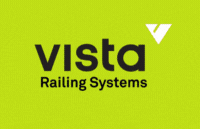
“I left that job for health reasons. They were sick of me, and I was sick of them.”
That old joke doesn’t seem so funny anymore. Not when mental illness has taken a serious toll on both workers and managers through two exhausting years of Covid lockdowns.
Now that we have work-from-home and hybrid workplaces, the mental health issues—still unaddressed in most businesses—loom even larger.
Mental health in the workplace was the subject of a seminar at the Retail Council of Canada’s Human Resources Conference, held recently in Toronto.
The presenter was Kristy Cork, a workplace mental health consultant based in St. Thomas, Ont. Her seminar focused on “steps retailers can take today to improve psychological health and safety into safety programs.”
Traditionally, those safety programs have focused on preventing physical accidents. Worker and customer safety has properly been the first training that new shop-floor employees receive. A case in point: Home Depot Canada spends about a third of its roughly 20 hours of “Before the Apron” new-hire training focused on physical safety. This includes hazardous materials, working at heights, equipment safety, and customer safety protocols.
But what about the mental health aspects of today’s workplace? Abusive or difficult customers, the urgency and stress created by digital media, relentless demands from well-meaning (or not) managers looking for ever-increasing productivity… It’s no wonder that Cork is so busy as a specialist focusing on the mental health part of HR.
“I like to talk about a culture of carelessness,” Cork said. “I’m sure you have physical safety provisions. It should be that way with mental health, too. Because workplaces cause harm.”
Cork said that everywhere employees are struggling—and some of yours are, too.
“There are employees parking their cars in the morning and they can’t come into the workplace before they sit there and give themselves a pep talk.”
Obviously, there is a problem here—one which is described by CSA National Standard 21003: Psychological Health and Safety in the Workplace.
It reads, simply: “Psychological safety is a state in which workers are free from exposure to reasonably foreseeable, significant risks to their mental health arising from the acts and omissions of other people in the workplace so that there is a low risk of mental injury.”
The costs of ignoring this little-known standard are real, Cork said. She put up a slide that listed some of them: increased turnover, litigation, absenteeism, short- and long-term disability claims, incidents, and conflicts.
Absenteeism is costly but “presenteeism” is just as expensive. That relatively new HR term, Cork explained, is where the employees show up at work but are unwell. They can even be in physical pain from their mental unwellness.




































